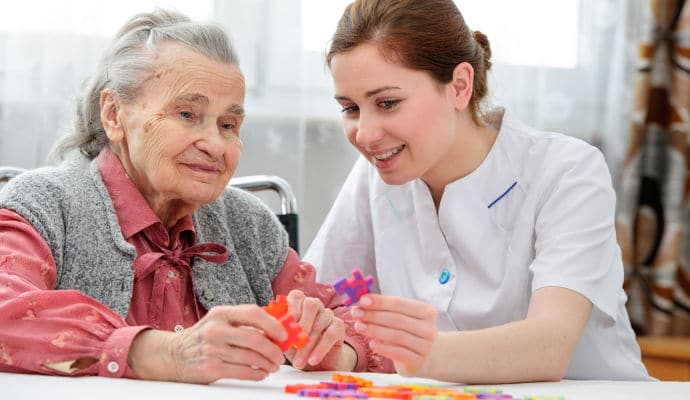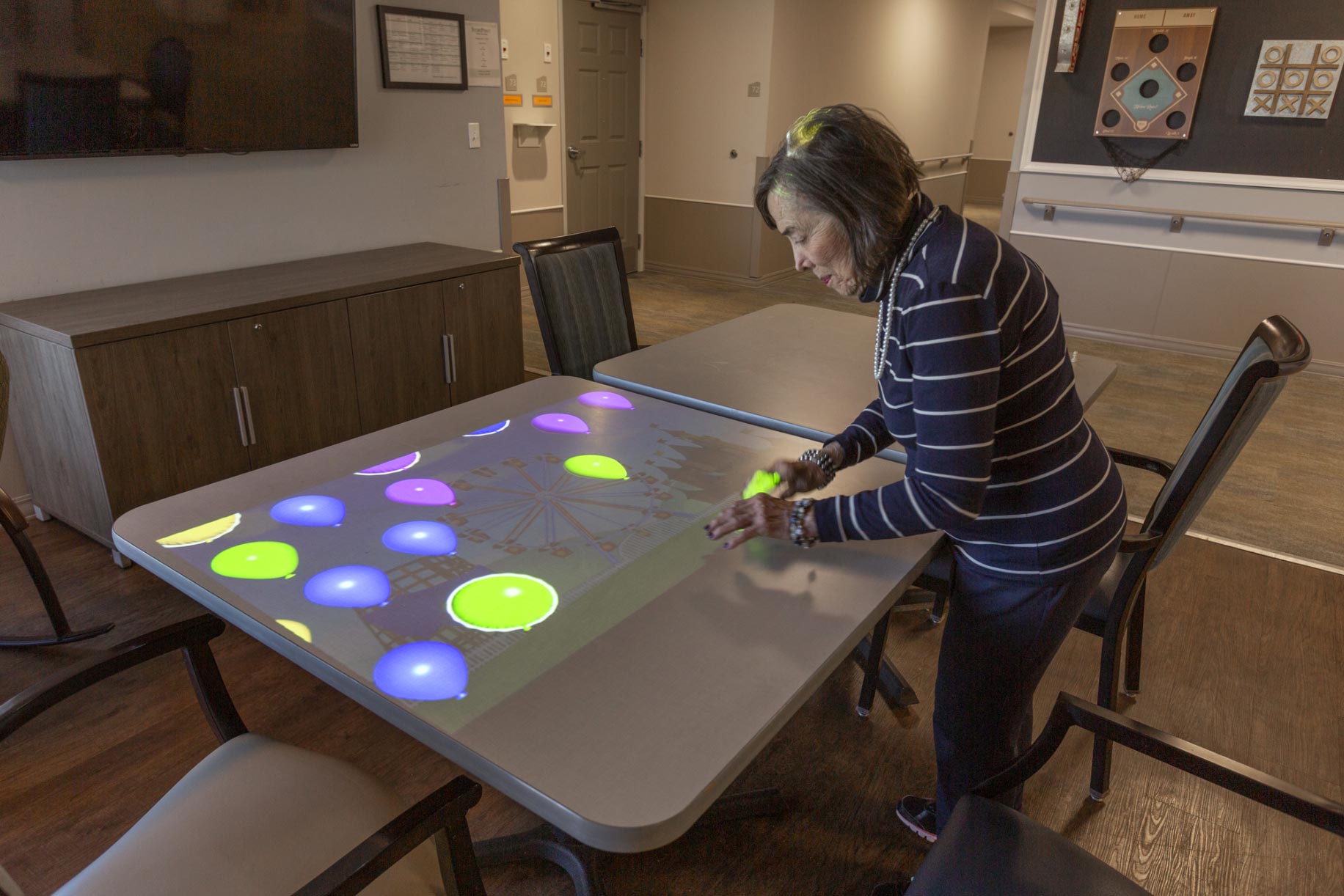Why Family Members Choose Reputable and Specialist Alzheimers Care Charlotte Facilities
Why Family Members Choose Reputable and Specialist Alzheimers Care Charlotte Facilities
Blog Article
Producing a Safe and Supportive Setting for Alzheimer's Treatment
The creation of a supportive and secure setting for individuals with Alzheimer's is extremely important in boosting their high quality of life. This involves not only physical adaptations within the home, such as minimizing hazards and including acquainted elements, but additionally the execution of organized regimens and purposeful tasks that provide to their cognitive demands. Moreover, understanding the psychological and psychological measurements of care can substantially influence their complacency and connection. Exploring these complex approaches can expose crucial insights right into reliable caregiving techniques that may change the day-to-day experiences of both individuals and caretakers.
Comprehending Alzheimer's Demands
Regularly, individuals with Alzheimer's disease display an array of demands that require tailored strategies to care. As the condition progresses, cognitive decline materializes in different means, impacting memory, reasoning, and also the capacity to execute daily activities. Caretakers have to acknowledge these evolving requirements to offer suitable support and guarantee a better of life for those impacted.
One vital facet of recognizing Alzheimer's demands is acknowledging the significance of regular and experience. Individuals often locate convenience in recognized patterns, which can reduce anxiousness and confusion. Caregivers need to aim to produce structured day-to-day routines that incorporate purposeful tasks aligned with the individual's rate of interests and abilities.
Additionally, effective interaction is extremely important. Individuals with Alzheimer's may battle to reveal themselves or comprehend complex language. Caretakers need to utilize basic, clear language, use non-verbal cues, and technique active listening to foster understanding and connection.
Finally, emotional and social requirements can not be overlooked. Providing chances for social interaction and maintaining partnerships can substantially improve emotional health. Caretakers must encourage interaction in community activities or family members gatherings, advertising a feeling of belonging and purpose. Comprehending these varied needs is crucial for producing an encouraging care atmosphere.
Creating a Safe Home
Creating a safe home for people with Alzheimer's illness is crucial to advertising and lessening dangers independence. The design of the living space should focus on safety and security while enabling individual comfort. First, remove potential threats such as loosened rugs, sharp objects, and clutter, which can lead to drops or mishaps. Make certain that paths are clear and well-lit, as proper lighting minimizes disorientation and improves mobility.
Including flexible functions is also essential. Install grab bars in bathrooms and near stairways, and think about using non-slip floor coverings in damp locations. In addition, making use of different shades for wall surfaces and floors can help in identifying rooms, assisting to reduce complication.
Experience is very important for individuals with Alzheimer's. Customizing the environment with acquainted objects and pictures can enhance a feeling of belonging and safety - Alzheimers Care Charlotte. It is likewise valuable to have actually a designated location for day-to-day activities, such as reading or crafting, which can give structure to their day
Lastly, implementing a secure outside area allows for secure expedition while connecting with nature. By thoughtfully creating the home setting, caretakers can considerably improve the lifestyle for people coping with Alzheimer's disease.
Enhancing Communication Skills

Non-verbal communication, consisting of face expressions, motions, and touch, plays a vital function in conveying compassion and understanding. Keeping eye get in touch with and a calm behavior can enhance the convenience degree of the individual, advertising a feeling of safety.
Moreover, it is very important to exercise active listening. This entails being completely present, revealing persistence, and allowing the individual to reveal themselves without disruption. Repetition might be needed; caregivers need to be prepared to review concerns or topics, as individuals with Alzheimer's might battle with memory recall.
In addition, using aesthetic help or signs, such as photographs or acquainted objects, can facilitate acknowledgment and involvement. Inevitably, boosting communication abilities is regarding building trust useful content fund and producing an atmosphere where individuals really feel heard, valued, and recognized, thus improving their lifestyle.
Motivating Social Communication
Fostering significant social communications can significantly boost the well-being of individuals with Alzheimer's illness. Involving with others not only assists battle sensations of isolation however likewise boosts cognitive function and emotional health and wellness. Structured social tasks, such as team arts, video games and crafts, or music therapy, produce possibilities for residents to get in touch with peers and caregivers, which can cause boosted mood and decreased stress and anxiety.
Developing a welcoming environment that encourages socialization is important. This can be accomplished by preparing public spaces that help with communication, such as comfy seating locations or task areas. Additionally, integrating culturally pertinent and acquainted tasks can urge and trigger memories participation, allowing individuals with Alzheimer's to really feel even more linked to their previous experiences.
Additionally, caregivers should be trained to identify and promote social engagement amongst homeowners. By prioritizing social communication, we can significantly enhance the lives of those living with Alzheimer's, promoting a feeling of community and belonging.
Sustaining Caregiver Wellness

To sustain caregivers, organizations should use routine training and instructional sources to improve their understanding of Alzheimer's illness and caregiving techniques. Providing accessibility to reprieve treatment services enables caretakers to take needed breaks, lowering stress and tiredness - Alzheimers Care Charlotte. In addition, promoting an area with support system can facilitate emotional sharing and the exchange of useful recommendations among caregivers, creating a network helpful resources of common support
Mental health resources, such as counseling solutions, can additionally be crucial in attending to the emotional toll caregiving can take. By focusing on caretaker wellness, we produce an even more sustainable caregiving setting that not just benefits the caregivers themselves but also boosts the total quality of treatment received by individuals with Alzheimer's. Ultimately, supporting caregivers is an essential component in fostering a efficient and thoughtful care setting.
Conclusion
To conclude, the creation of a risk-free and supportive atmosphere for people with Alzheimer's is crucial to enhancing their lifestyle. By focusing on security through thoughtful layout, promoting psychological wellness with acquainted elements, and advertising interaction through structured regimens, caretakers can considerably impact the general experience of those affected by this condition. Moreover, sustaining caretaker wellness is crucial, as it inevitably adds to an extra caring and reliable care environment.
Repeating might be needed; caretakers should be prepared to review subjects or concerns, as individuals with Alzheimer's may battle with memory recall.

Report this page